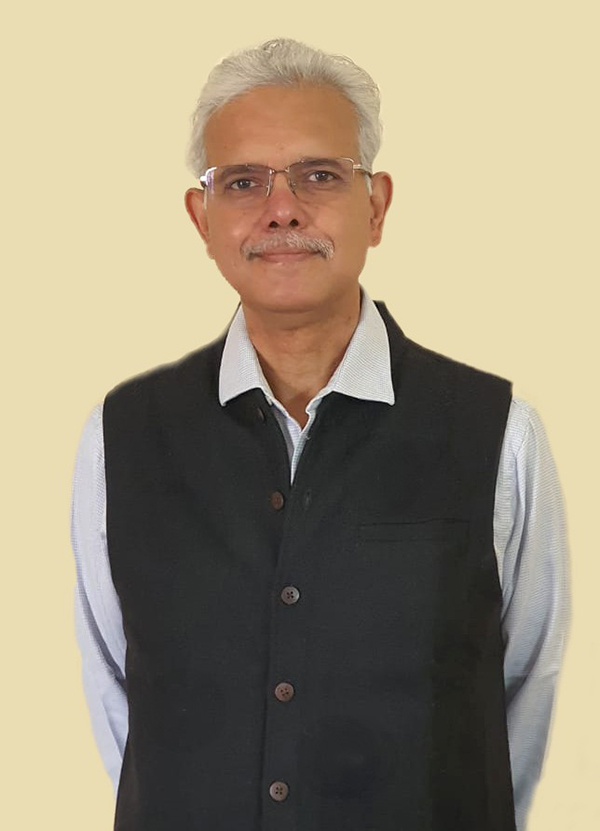The International Rice Research Institute (IRRI) announced last week the appointment of Dr. Sudhanshu Singh as the new Director of IRRI South Asia Regional Centre (IRRI SARC) in Varanasi, Uttar Pradesh, India. Dr. Singh took on the role on 4th January 2021.
IRRI Director General Matthew Morell said of the selection and appointment to this strategic and coveted assignment in South Asia for the Institute, “Dr. Singh brings a wealth of experience, institutional knowledge, and demonstrated a track record to his new role. This will be pivotal to maintaining, consolidating, and pushing the boundaries of quality outcomes and impact of IRRI's Research for Development agenda.”
Dr. Singh, a native of the Samenda village of Azamgarh district in Uttar Pradesh, is an IRRI alumnus who did his Ph.D. in Agronomy in its headquarters in the Philippines and post-graduate and graduate degrees from Acharya Narendra Deva University of Agriculture and Technology, Kumarganj, Ayodhya. He is an acclaimed agriculture expert with 26 years of extensive experience in the field of agricultural sciences notably in research and development, forging strategic alliances, institutional management, and developing and promoting sustainable intensification technologies tailored to major environments. He demonstrated strong and strategic management and leadership skills. He has done an outstanding job over the decade in transforming agriculture in South Asia with several innovative technologies developed that address the needs of the farmers and consumers in the region. He has authored and co-authored many publications in reputable peer-reviewed journals as well as book chapters and several communication materials.

Dr. Singh led several key projects in South Asia such as the Bill and Melinda Gates Foundation (BMGF)-funded IRRAS project in Bihar, the World Bank-funded APART project in Assam, the European Commission- and International Fund for Agriculture Development-funded projects on abiotic stresses, and the USAID and BMGF-funded CSISA project across South Asia. He was also a key contributor to the BMGF-funded mega project STRASA. He successfully developed strong collaborative research and scaling partnerships in South Asia with national and international public and private agencies and organizations, including NARES, advanced research institutes, international NGOs, and sister CGIAR centers. He led key programs through a strong growth phase and broadened IRRI footprints in South Asia with strategic planning, execution, and impact at the grassroots level, and created a new avenue of future investment for IRRI. He has established one of the largest teams in IRRI with utmost priority on inclusive and transparent project management and teamwork. Dr. Singh represented IRRI at several international and national platforms/forums and participated in mutually beneficial interactions through scientific exchanges and knowledge and experience sharing.
At IRRI SARC, Dr. Singh headed the Broader Program for Research and Partnership and led the Centre’s diverse research programs and teams. Since the conceptualization and inception of IRRI SARC, he has been extensively involved in establishing laboratories and farm facilities. Prior to joining IRRI in 2011, he served at the State Government of Rajasthan as a provincial civil service officer and thus has a deep understanding of bureaucratic procedures and protocols. He has developed a strong network and has a notable presence in the policy and political arena besides R&D partnerships in India, Bangladesh, and Nepal.
“I am excited to be heading a prestigious institution with a mandate to operate in South Asia”, said the new IRRI SARC Director. “The Centre is equipped with cutting-edge research and training facilities and a well-trained human resource base that can take leadership roles in developing innovative products and creating impacts in the rice industry and value chain in South Asia and Africa. I firmly believe that the Centre will best serve the needs of farmers, consumers, and different stakeholders as well as the scientific community and agri-food sector in both regions. I will focus on its strong positioning as the preferred partner of governments and other NARES organizations in the region by aligning its priorities with the national and regional strategies through demand mapping. We will also work on widening the R4D partnership with key international agencies to make IRRI SARC a center of choice for them. Moreover, tapping of unexplored private & public sector partnership and building a strong linkage with the industry to mobilize resources, scale innovation, and strengthen and leverage successful multi-CGIAR projects and networks for sustained innovations and joint resource pulling will be on top priority agenda for us in 2021,” Dr. Singh elaborated while highlighting his vision for IRRI SARC. “Better prioritization and targeting of resources, together with close integration with IRRI HQ will further develop it as a core OneCGIAR facility in South Asia. Further, South-South collaboration has received a renewed interest and a potential area where IRRI SARC can play a critical role in collaboration with various ministries of the Government of India, the Indian Council of Agricultural Research, governments in Sub-Saharan Africa, international donors, and IRRI Africa,” he added.

